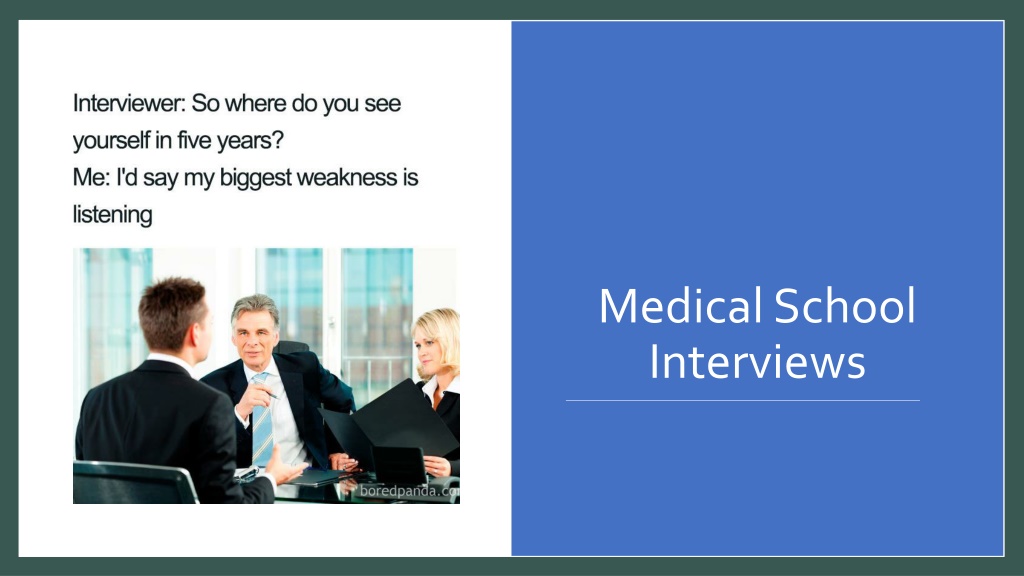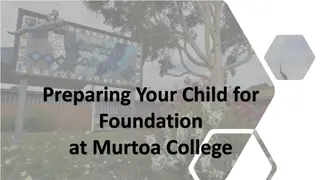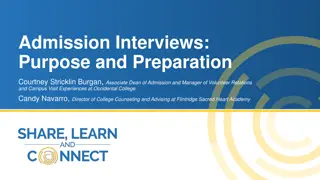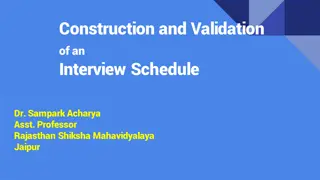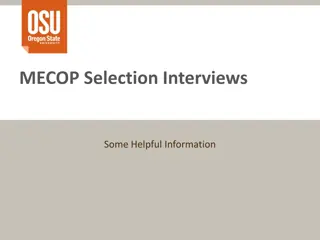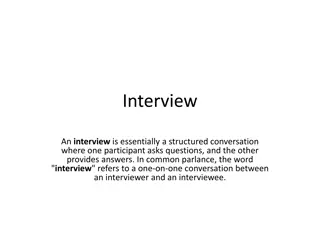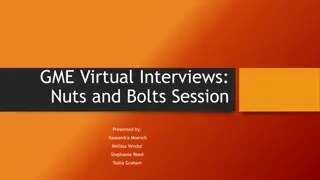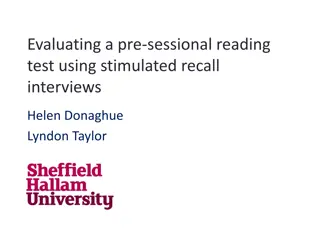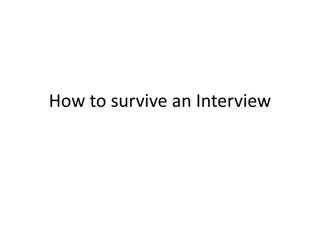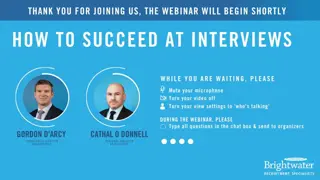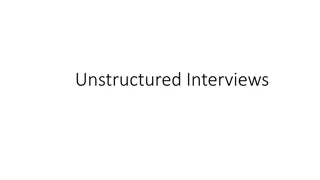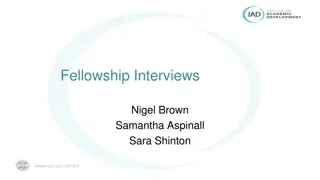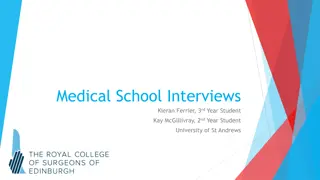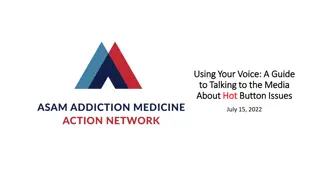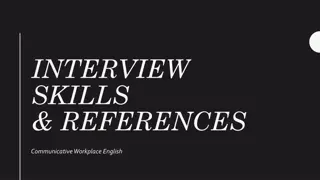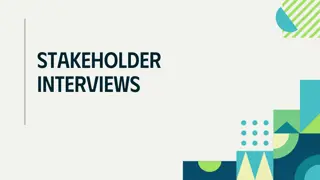Preparing for Medical School Interviews: Tips and Strategies
Understand the key points to excel in medical school interviews: be genuine, show passion, connect answers to medicine, stand out in a competitive field, showcase preparation for a medical career, demonstrate resilience, highlight leadership skills, discuss knowledge about the course and ethics in medicine.
Download Presentation

Please find below an Image/Link to download the presentation.
The content on the website is provided AS IS for your information and personal use only. It may not be sold, licensed, or shared on other websites without obtaining consent from the author. Download presentation by click this link. If you encounter any issues during the download, it is possible that the publisher has removed the file from their server.
E N D
Presentation Transcript
Medical School Interviews
General Points Be yourself Act like you really want to be there Communicate eye contact, clear and concise, smile Always think how does this answer relate to medicine and being a doctor? Always think how can I demonstrate what I learnt from this experience? Small fish in big ocean what will make you stand out?
Motivation for medicine What have you done to prepare for a career in medicine? Expand on personal statement Widening participation courses/previous degrees/webinars etc Difficulties overcome to get there WHAT DID YOU LEARN FROM THE EXPERIENCE HOW IS THIS APPLICABLE TO MEDICINE
Resilience Medical school/medicine is HARD What strategies may you employ to ensure resilience? Have you ever had an experience which required resilience or needing to overcome difficulty/where you continued despite difficulty Think of this as an opportunity to demonstrate extra-curricular skills and how these are beneficial in a medical role
Responsibility Have you ever held a position of responsibility? Organizational ability? If organizing an event what was the process, did you learn from it? Leader of team or senior member of team what skills did you need? Being trusted to complete projects How did you fulfil the responsibility? Delegation? HOW IS THIS RELATABLE TO MEDICINE MDTs, Seniors vs Juniors (delegation), management responsibility as a Dr, are Dr s always leaders?
Knowledge about course What do you know about the course PBL vs Lectures vs Hybrid Don t just say what you know, say why you like it Know about the university what extra-curricular opportunities are they and more importantly, why do you care? Is this going to help you become a more rounded invididual/stress relief/resilience/build relationships etc How is this course different from others?
Ethics Know: 4 main ethical principles, utilitarianism vs deontology NHS Core Values Its all well and good knowing these, but how do they apply to the situation? Anyone can repeat the 4 principles but application is important There are no right or wrong answers they want to see your judgement and reasoning What outcomes might result from decisions made? For issues which you identify what is your opinion? What is the best course of action? How have you reached this decision?
Possible ethical issues Consent for: operations, withdrawal of care, treatment Best interests decisions: children and adults Euthanasia and Withdrawal of care/EoL decisions NHS Rationing and deciding treatment based on lifestyle i.e. smoking COVID related decisions visiting restrictions, cancelling elective operations, immunizations and declining imms (herd vs 2nddose), human cost, protection of staff vs patients, wellbeing and emotional toll, human rights Social Media also professionalism question Safeguarding
Professionalism Again, no right or wrongs. But what do you know about professionalism and the responsibilities of a doctor? Responsibilities BEYOND patient care Service development, rationing, education of future doctors, new treatments, politics and healthcare, global health What does it mean to be a good role model? Why is all of this important for a doctor?
Comprehension and Data Interpretation Understanding of a prominent news or cultural story Express opinions (and defend this) about controversial issues Be succinct and clear Data interpretation show them your way of thinking
Caring/Communication Caring communication with a distressed individual - Have you ever had an experience where you have had to help someone? What was the impact on you and the recipient of care? - Responsibilities - WHAT DID YOU LEARN FROM THE EXPERIENCE Examples of scenarios: Relative has died, young carer, new diagnosis, suicide in close friend/relative, Examples: paid or voluntary work, school work, community groups, religious groups, charities etc Have you ever witnessed an example of caring?
Caring/Communicating/Empathy Acknowledge Apologise Ask questions: when did it happen, would you like to talk about it, do they have support Is there anything I can do to help? Demonstrate that they are able to talk to an individual in this situation and then reflect upon own experiences
